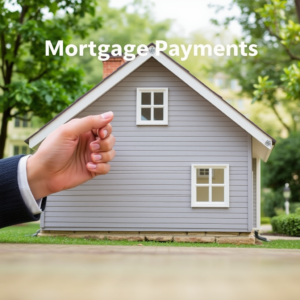For every homeowner, it is believed that house fire is the worst disaster. It leaves behind devastation and destruction both physically and psychologically. Stepping into the next phase are some pressing financial questions. For instance, if your house burns down do you still pay the mortgage? It can be a weary and depressing matter to see the consequences of fires. Understanding your responsibilities, insurance options, and potential next steps is critical to navigating this difficult time.
Do You Still Have to Pay Your Mortgage If Your House Burns Down?
Even if your house burns to the ground, it is not likely that the responsibility for paying the mortgage would be wiped off instantly. A mortgage is a loan secured by your property, but this contract is between you and your lender, not linked to the actual physical state of the house. Even when the house gets burned down, your liabilities toward your lender remain binding. Here’s how it breaks down:
- The lender expects monthly mortgage payments until the debt is paid off or resolved through other means.
- While homeowners insurance provides financial assistance in the event of damages or losses, it should not be considered a substitute for fulfilling your mortgage obligations. Home insurance protects against unexpected events, but it does not eliminate the responsibility to make regular mortgage payments.
- Not being able to pay your bills on time may lead to your home being taken away by the lender, causing more stress on top of an already difficult situation.
Understanding the role of insurance and how it supports you during this time is key to exploring your options.
How Does Insurance Come Into Play?
Most homeowners have to carry property insurance as one of their mortgage requirements. Such insurance addresses losses or damages to the home, including fire. However, this is something you should know in relation to your mortgage.
Payout from Insurance
The first step after a fire destroys your home is to file a claim with your insurance company for damages. Depending on your policy, the payout may cover:
- The cost of rebuilding or repairing the home.
- The value of items lost in the fire.
- Temporary living expenses if you’re displaced.
If you have a mortgage, the insurance company may direct some or all of the payout to your lender to satisfy the outstanding loan balance.
Rebuilding vs. Paying Off the Loan
The funds can be used to either rebuild the home depending on circumstances. Complete insurance payout for the loan may alleviate mortgage responsibilities altogether. However, rebuilding offers opportunities not only to restore the value of the property but also to regain equity.
Gaps in Insurance Coverage
It is worth mentioning that inadequate insurance coverage can put you in a tight spot. If your policy does not cover the entire cost to rebuild or pay off the mortgage, you will have to pay the difference. Hence, to avert later financial strain, reviewing and updating your insurance policy is essential.
Working with Your Mortgage Lender After a Fire
Communication with your mortgage lender is vital after a devastating event like a house fire. Lenders typically have specific procedures in place for handling such scenarios.
Notify Your Lender Immediately
Notify your lender about the damage as soon as possible. They will advise you on the next course of action and may offer relief in the interim, including such options as:
- Pausing or restructuring mortgage payments.
- Allowing insurance payouts to address the balance.
Escrow Accounts
If the lender has an escrow account for property tax and insurance payments, it may dictate how the proceeds of an insurance claim are used. This ensures that the funds are used to either reconstruct the house or pay down the mortgage.
Loan Modifications
Only if repairs to your home take too long to finish or if the insurance payout is short, the lender may consider modifying your loan accommodation and other repayment possibilities here.
What Happens If You Stop Paying Your Mortgage?
The worst-case scenario after a house fire is defaulting on your mortgage. However, this can lead to even more problems:
- Foreclosure: Lender will have the right to take over the property, leaving you with neither equity nor anywhere to live.
- Credit Damage: Lender will have the right to take over the property, leaving you with neither equity nor anywhere to live.
Being proactive, collaborating with your lender, and considering alternatives such as insurance claims or the sale of your home before experiencing a financial setback are all essential.
The question if your house burns down do you still pay mortgage might sound alarming at first, but understanding the process can help ease the fear. While you are still responsible for the loan, insurance and lender assistance are there to support you. Whether you choose to rebuild, sell, or pay off the debt, careful planning can help you recover financially and move forward.
Previous